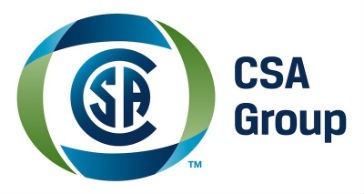Canada's new national standard for plastics recycling
CSA Group publishes National Standard to improve clarity and efficiency in plastics recycling across Canada
As Canada works towards a more sustainable future, the need for a consistent definition of plastics recycling has never been more urgent. Research by CSA Group highlights a significant knowledge gap among Canadian business leaders, with only 36 percent feeling confident in defining plastics recycling.
Furthermore, an overwhelming 92 percent agreed that a unified definition would be essential for effective action. The research findings underscore the need for clarity across the entire plastics recycling supply chain.
Now, CSA Group has published a new National Standard for Canada, CSA R117:24: Plastics Recycling: Definitions, measuring, and reporting. The standard, developed in collaboration with the Standards Council of Canada (SCC), provides a comprehensive definition of plastics recycling in Canada and is expected to help policymakers and business leaders understand clearly and consistently when and how much plastic has been fully recycled. It also aims to help standardize the reporting and calculation of recycling rates, targeting all non-biodegradable plastics.
"Standards can play a critical role in plastics recycling," says Michael Leering, director of environment and business excellence at CSA Group. "By establishing a standardized framework and consistent definitions across the various recycling methods, tracking, and measuring, the circularity of plastics becomes more clear. In turn, this new national standard can help support better decision-making across supply chains."
The National Standard of Canada was developed using a consensus-based approach, shaped by volunteer members representing government officials, manufacturers, recyclers, and other industry stakeholders.
"The transition towards a circular economy is ongoing," continues Leering. "By defining points where materials can be deemed ‘recycled', this standard will help guide industry leaders in enhancing the efficiency of recycling reporting."
Various stakeholders stand to benefit from the new standard, including policymakers wishing to establish plastics recycling rate targets in legislation, municipalities that report data on the recycling of plastic, waste management companies reporting on their recycling performance, and industries that partake in the plastics supply chain.
CSA Group continues to invest in research and standards focused on supporting Canada's transition towards a circular economy, such as A Roadmap to Support the Circularity and Recycling of Plastics in Canada, and Defining Recycling in the Context of Plastics. This research serves as a resource for policymakers and industry partners to create a more streamlined plastics recycling process.
Key CSA Group research data
The absence of a consistent definition of plastics recycling hinders recycling efforts in many Canadian workplaces.
- 36 percent of Canadian business leaders find it easy to define plastic recycling.
- 54 percent say they find it challenging to define plastic waste recycling.
- 51 percent say their companies don't have a clear definition of what plastics recycling includes.
- 51 percent indicated that recycling efforts are thwarted by employees not knowing how to correctly dispose of and/or sort plastic waste.
- Although the vast majority agree on the benefits of plastic waste recycling, including reducing the amount of waste in landfills (91 percent), preserving ecosystems and wildlife (89 percent), and lowering plastic pollution in the oceans (88 percent), most (65 percent) believe that only a small fraction of plastic waste is actually recycled.
The majority of Canadian business leaders report having plastic recycling programs at work, with some indicating issues with the availability of designated bins.
- 84 percent reported that their workplace has a plastic waste recycling program, despite some indicating that the absence (28 percent) or inconvenience (26 percent) of designated plastic waste recycling bins limits efforts to recycle plastic waste at their workplace.
A common definition of what it means to recycle plastic waste in Canada is needed.
- 92 percent agree that it is important to have a common definition of plastic waste recycling.
- 81 percent agree that Canada needs a more consistent framework that defines plastics recycling.



